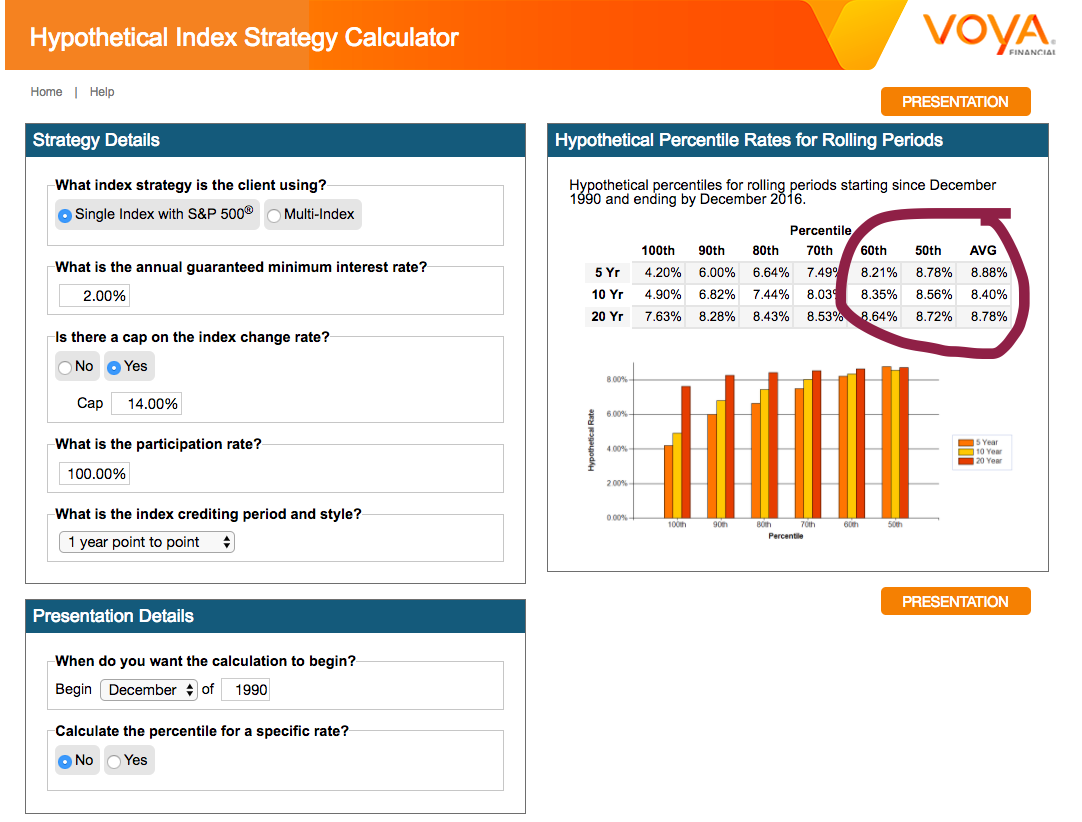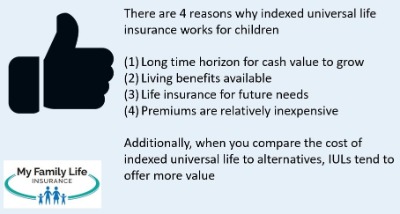All Categories
Featured
Table of Contents
1), frequently in an effort to beat their classification averages. This is a straw male argument, and one IUL folks enjoy to make. Do they contrast the IUL to something like the Vanguard Total Amount Stock Exchange Fund Admiral Shares with no tons, an expense proportion (EMERGENCY ROOM) of 5 basis factors, a turnover proportion of 4.3%, and an exceptional tax-efficient document of circulations? No, they contrast it to some dreadful proactively taken care of fund with an 8% lots, a 2% EMERGENCY ROOM, an 80% turn over proportion, and a horrible document of temporary funding gain circulations.
Common funds usually make annual taxed distributions to fund proprietors, even when the worth of their fund has actually decreased in value. Mutual funds not just need earnings coverage (and the resulting annual taxes) when the mutual fund is going up in value, however can additionally impose revenue tax obligations in a year when the fund has decreased in worth.
You can tax-manage the fund, gathering losses and gains in order to decrease taxed circulations to the investors, but that isn't somehow going to transform the reported return of the fund. The ownership of common funds might require the shared fund owner to pay estimated taxes (best iul products).

IULs are very easy to position to make sure that, at the owner's fatality, the beneficiary is not subject to either revenue or estate taxes. The very same tax decrease techniques do not function almost also with shared funds. There are numerous, typically expensive, tax catches related to the timed buying and selling of shared fund shares, traps that do not apply to indexed life insurance policy.
Opportunities aren't really high that you're going to go through the AMT as a result of your shared fund circulations if you aren't without them. The rest of this one is half-truths at best. While it is real that there is no earnings tax due to your successors when they inherit the proceeds of your IUL policy, it is likewise true that there is no revenue tax due to your heirs when they inherit a mutual fund in a taxable account from you.
Accumulator Universal Life Insurance
There are much better means to avoid estate tax problems than buying financial investments with low returns. Mutual funds might create income tax of Social Security benefits.

The development within the IUL is tax-deferred and might be taken as tax totally free revenue via finances. The policy proprietor (vs. the common fund supervisor) is in control of his/her reportable income, therefore enabling them to reduce or also eliminate the taxes of their Social Protection advantages. This one is terrific.
Right here's one more very little problem. It's true if you acquire a mutual fund for state $10 per share right before the circulation day, and it distributes a $0.50 circulation, you are then going to owe taxes (most likely 7-10 cents per share) regardless of the fact that you haven't yet had any kind of gains.
In the end, it's really about the after-tax return, not exactly how much you pay in taxes. You're additionally probably going to have even more money after paying those tax obligations. The record-keeping needs for owning shared funds are considerably more complex.
With an IUL, one's records are maintained by the insurance policy firm, copies of annual declarations are mailed to the proprietor, and distributions (if any kind of) are amounted to and reported at year end. This is likewise sort of silly. Naturally you should keep your tax records in instance of an audit.
Adjustable Life Insurance Policies
All you have to do is shove the paper into your tax obligation folder when it turns up in the mail. Hardly a factor to acquire life insurance policy. It's like this guy has never ever purchased a taxable account or something. Shared funds are commonly part of a decedent's probated estate.
Furthermore, they go through the delays and costs of probate. The proceeds of the IUL policy, on the other hand, is constantly a non-probate distribution that passes beyond probate directly to one's named recipients, and is therefore exempt to one's posthumous creditors, unwanted public disclosure, or similar hold-ups and prices.
Medicaid incompetency and lifetime income. An IUL can give their proprietors with a stream of revenue for their entire life time, regardless of just how long they live.

This is advantageous when arranging one's events, and transforming properties to income prior to an assisted living home confinement. Mutual funds can not be transformed in a comparable fashion, and are usually considered countable Medicaid assets. This is one more foolish one supporting that bad individuals (you recognize, the ones who need Medicaid, a government program for the poor, to spend for their retirement home) ought to utilize IUL instead of common funds.
Gul Policy
And life insurance looks horrible when contrasted relatively against a pension. Second, individuals that have cash to buy IUL over and past their pension are mosting likely to have to be horrible at handling money in order to ever qualify for Medicaid to spend for their nursing home costs.
Chronic and terminal health problem motorcyclist. All policies will permit an owner's easy access to money from their plan, often waiving any type of surrender penalties when such people experience a significant illness, need at-home treatment, or end up being restricted to a retirement home. Common funds do not offer a similar waiver when contingent deferred sales costs still relate to a shared fund account whose proprietor requires to market some shares to money the expenses of such a stay.
Master Iul
Yet you get to pay more for that advantage (biker) with an insurance coverage. What a large amount! Indexed universal life insurance policy gives death advantages to the beneficiaries of the IUL proprietors, and neither the proprietor nor the beneficiary can ever before shed money because of a down market. Mutual funds supply no such assurances or fatality advantages of any type of kind.
Now, ask yourself, do you really need or desire a survivor benefit? I definitely do not need one after I get to economic self-reliance. Do I desire one? I expect if it were economical sufficient. Certainly, it isn't low-cost. Usually, a purchaser of life insurance policy pays for real price of the life insurance policy benefit, plus the expenses of the policy, plus the profits of the insurer.
Pros And Cons Of Indexed Universal Life Insurance
I'm not completely certain why Mr. Morais threw in the whole "you can't shed money" once again here as it was covered rather well in # 1. He just intended to repeat the most effective selling point for these points I suppose. Once more, you don't shed small dollars, however you can shed genuine dollars, in addition to face severe chance price as a result of reduced returns.

An indexed global life insurance coverage plan owner might trade their plan for an entirely different plan without setting off revenue taxes. A common fund proprietor can stagnate funds from one shared fund company to another without selling his shares at the previous (hence triggering a taxed event), and buying brand-new shares at the last, commonly subject to sales fees at both.
While it holds true that you can exchange one insurance plan for one more, the reason that people do this is that the very first one is such a dreadful plan that also after purchasing a new one and undergoing the early, negative return years, you'll still come out ahead. If they were sold the right plan the very first time, they should not have any type of need to ever before exchange it and go through the very early, adverse return years again.
Latest Posts
What Is Universal Life Insurance With Living Benefits
Guaranteed Universal Life Insurance Rates
Cheap Universal Life Insurance